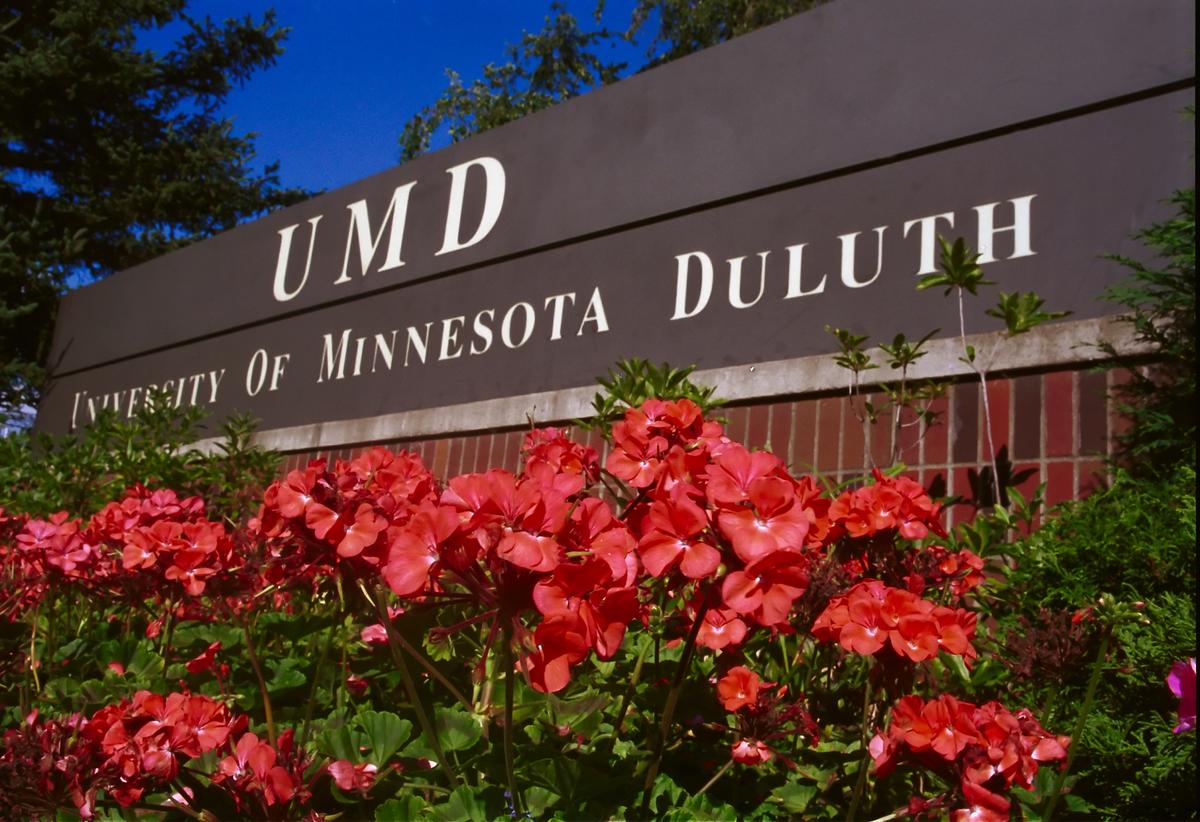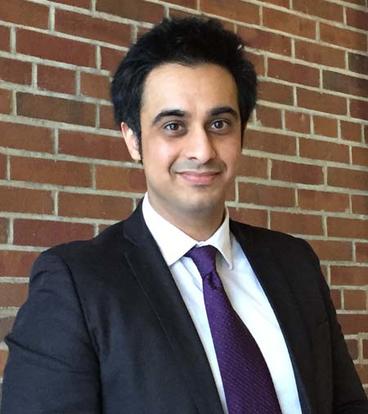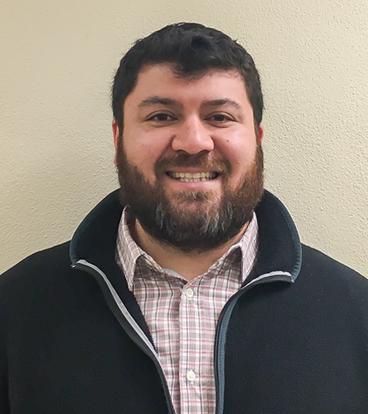UMD knows that building an inclusive group of faculty brings vibrancy to classes and departments. That's why UMD continues to work toward equity and diversity through Pre-Doctoral Teaching Fellowships. The program, now in its sixth year, brings Ph.D. candidates, who have completed all requirements for the doctorate except the dissertation, to UMD to teach one course per semester while writing their dissertations. In the 2015-16 school year, UMD is hosting two fellows, Basit Hammad Qureshi and Alex Hermida.
Basit Hammad Qureshi
Basit's research travels back to the Middle Ages, to the pilgrimages and Crusades during the 11th and 12th centuries in France and the Mediterranean. While his work seeks out historical facts, he brings out lessons for today's political realm. "Political entities rise and fall, but ideas and institutions continue to transfer between cultures, establishing continuity and commonality across the human experience," he says. His examples of blended customs include systems of governance, religions, food, and culture.
Basit comes to UMD with a long list of awards and fellowships. His projects have taken him around the world, to many areas in France, Egypt, England, and a several month stay in Jordan.
His dissertation, "A Sovereign of Two Worlds: Count-King Fulk V of Anjou, Crusade, and Conceiving the Medieval State in France and the Eastern Mediterranean, ca. 1090-1150," delves into a rare moment in time. It follows a nobleman, Fulk V, from west central France to Jerusalem, where he marries, and briefly becomes the King of Jerusalem.
Basit's deep knowledge about the Crusades gave UMD students an exciting look at the Arthurian legend in the fall class, King Arthur in History, Literature, and Art. Basit is currently teaching a seminar class, "Interfaith Relations from Jesus to Modernity."
He's enjoying his time at UMD. "The seminar class is especially rewarding," he says.
Alex Hermida
Alex's journey through academia informs his teaching and his dissertation topic. He moved to the states from Colombia, South America, and has been to universities in California, Nevada, and Minnesota. Years of attending universities as one of the few minorities in his classes and even more years of working with underserved youth in high school, college, and community settings have given Alex a unique perspective. He had the drive to navigate his way through an undergraduate and masters courses and now a doctoral program in Higher Education Policy, but he was struck by a phenomenon. Many of his students, friends, and classmates dropped out.
Alex is determined to find out what was stopping those students from achieving their goals. His dissertation, "How Sense of Belonging Impacts Attrition for Underrepresented Minority Students in U.S. Doctoral Education Programs," systematically details the statistics. Depending on the program, 40-70 percent of minority students never finish their advanced degree. His surveys compare minority students and white students and their "sense of belonging." While he is still compiling data, his search is sure to inform colleges and universities about strategies to support minority students pursuing advanced degrees.
Alex taught two UMD classes in fall 2015, a First Year Seminar and Race, Class, and Gender. This spring he is teaching The Politics of Race in Education. He likes teaching, and he likes his colleagues. "UMD's social work department is one of the most welcoming departments I have worked in," he says. He also has praise for the pre-doc program. "It's beneficial because it gives me experience teaching and time to finish my dissertation," he says.
UMD's Pre-doc Program
The Pre-Doctoral Teaching Fellowships offer Ph.D. candidates an opportunity to teach while finishing their pre-doctoral requirements, to diversify the faculty at UMD, and to provide a professional development program and mentorship for the pre-docs. Fellows are mentored by senior faculty, and they participate in department and campus activities.
About UMD: History | English | Social Work


